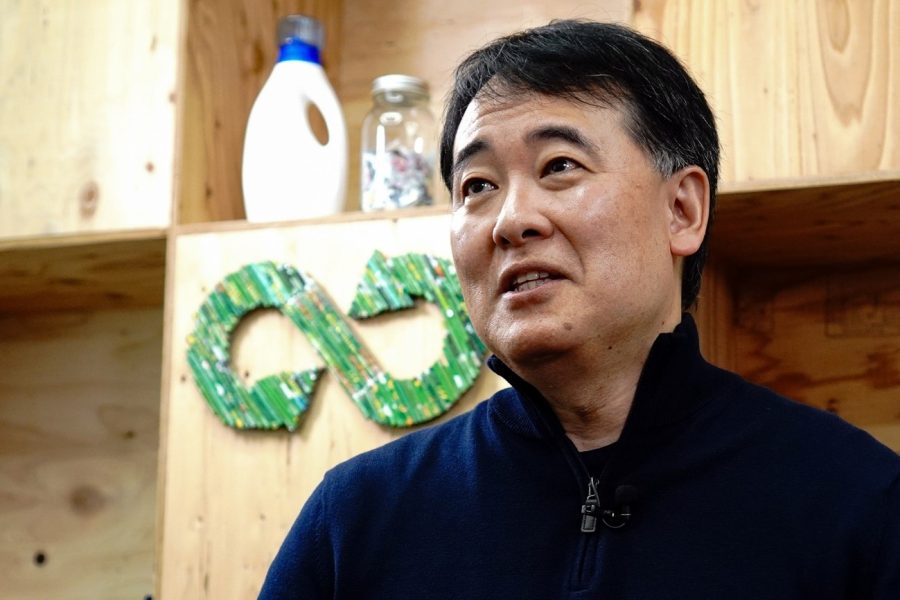
TerraCycle Japan, which has been working on a project that transcends the boundaries between industry, government, and academia to reform the throwaway culture and establish a lifestyle tailored to a circular economy, will introduce a “future trash box (resource collection box)” at the Expo 2025 Osaka, Kansai, Japan. What is the resource recycling model for plastic waste that will involve consumers even before the start of the expo and be presented to the world? We take a closer look at efforts to overturn the concept of trash itself.
From October 2023, collection boxes with encouraging messages such as “Let’s turn over a new leaf at the Expo 2025 Osaka, Kansai, Japan!” and “Let’s collect empty containers and take part in their recycling!” will be set up at supermarkets of the major distribution group “Aeon” and will be installed at 650 stores nationwide. Used plastic containers of detergents, fabric softeners, and hair care products will be collected from shoppers and used as raw materials for resource collection boxes to be set up at the expo venue. This initiative is designed to create tools for recycling from recyclable materials. TerraCycle Japan, Aeon, and P&G Japan, a manufacturer of daily necessities, have teamed up for this project.
Mr. Eric Kawabata, President of TerraCycle Japan, who is passionate about the project, stated that “By bringing used empty plastic containers, which are usually thrown away, to the stores, everyone can participate in the expo. Through the expo to be held in Japan, we want to show the world that if we all work together, we can turn waste into resources and help realize a recycling-oriented society.”
With a mission statement of “Eliminating the Idea of Waste,” TerraCycle has been tackling the world’s waste problems through activities such as recycling difficult-to-recycle waste. Headquartered in the United States, TerraCycle has offices in Canada, the United Kingdom, China, South Korea, and other countries in addition to Japan.
Originally from California, Kawabata earned a master’s degree in law at the University of Washington and worked as an executive at a major overseas investment bank before specializing as an environmental consultant. The turning point came in 2013 when he met Tom Szaky, the founder of TerraCycle. When consulted about developing the business in Japan, Kawabata responded frankly, “I think it’s a great idea, but I don’t think Japan needs it.” According to data from the Ministry of the Environment and news reports, Japan has an advanced waste separation and collection system, a high recycling rate, and very little littering. He didn’t think there was a garbage problem in Japan.
However, an investigation revealed that the reality was different. Most of the recovered plastic was being “thermally recycled,” meaning that the heat generated when it is burned is used to generate electricity. This goes against the principle of decarbonization. Then, a question suddenly occurred to him, “How many people in Japan know what happens to the waste after it is collected? As an island nation, we have always valued limited resources and have developed the spirit of ‘saving.’ If only we could raise awareness of this problem, we could make more progress than any other country in ‘material recycling,’ which is the recycling of waste into raw materials and products.”
As he learned more about the current situation, he became more determined. In January 2014, he became President of the Japanese subsidiary, taking the first step toward eliminating the throwaway culture in Japan.


Share this article


